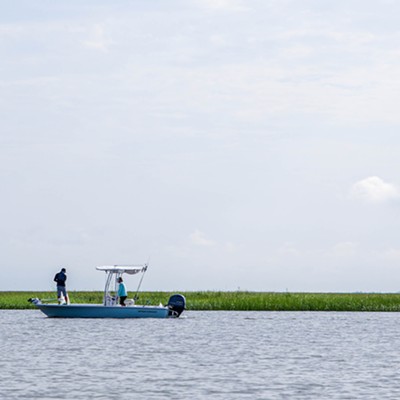When you order red snapper in a restaurant, how do you know you're eating red snapper? You don't. In fact, about three-quarters of all "red snappers" sold in the United States are mislabeled - it's probably the most mislabeled fish in the country. And mislabeling fish, any fish, is bad for two reasons - your wallet and the ocean environment.
Let's first talk about the hit to your wallet. In one 2008 study on market substitution in North American seafood, scientists decoded the DNA of nine red snappers (Lutjanus campechanus) bought in New York City, and they found that just two of the samples were labeled correctly. The seven mislabeled fish were five different marine species. Two were "Acadian redfish" (Sebastes fasciatus). At the time of the study, the Acadian redfish went for $0.72 per pound, while red snapper sold for $2.93 per pound. Ouch.
Google "mislabeled fish" and you'll come up with scores of similar examples. If you eat fish, chances are you're getting dinged. And, in terms of the future of fish stocks, your kids and grandkids are getting dinged.
As recently as a month ago, the Toronto Star newspaper in Ontario, Canada collected sushi samples from city restaurants and genetically tested them. Ten of 12 samples labeled red snapper were actually tilapia. Red snapper is five times the price of tilapia. The two species are unrelated.
Tilapia is a common actor in the fish substitution game because it is plentiful and currently easy to come by - 73 percent of the tilapia consumed by humans is farmed. In fact, it's an old aquaculture standard; the Egyptians cultured it more than 3,000 years ago. Tilapia is so versatile, it's poised to take over from Alaskan pollock, the preferred fish in fish sticks and other fast food.
What's wrong with that? We're creating an illusion of fish abundance.
For example, Alaskan pollock populations - generally a well-managed fishery - have declined recently (although that could be a cyclical event). Still, no one wants pollock to go the way of the Atlantic cod, once the most popular fish in the Western world and a fishery that has collapsed from decades of over fishing. While substituting tilapia for Alaskan pollock might give pollock some breathing space, the problem with mislabeling - not calling a tilapia a tilapia, a pollock a pollock - is that it paints the wrong picture of what's happening to the oceans, and gives people a false sense of security about how many fish are left for us to catch and eat.
Mislabeling masks the magnitude of the decline of ocean fisheries. Red snapper, for example, is so overfished, we could be the last generation to eat it. But there is no way you or I could know that - or act to save the species - if we regularly see red snapper on the menu.
Mislabeling fish means you're getting ripped off and that we're ripping off future generations. To protect your wallet and the diet of our children every government needs the same kind of ambitious plan unveiled in the Netherlands in 2006.
By 2011, all wild-caught fish and seafood at every food retail chain in the Netherlands will come from sustainable fisheries, and be certified by the Marine Stewardship Council (MSC), a British-based organization that tracks fish from boat to table. That means 4,500 outlets in the Netherlands will offer their 16 million consumers the possibility of an ethical and informed choice.
Yes, both the United States and Canada have programs like Seafood Watch to raise consumer awareness about how our culinary choices can impact fisheries. The programs, however, depend on consumers voluntarily making the right decision. And who can make the right decision when seafood providers are playing a fishy shell game?
There is just no way to know whether the fish we are eating is what we think we are eating, unless every fishery is certified in a regulated MSC-like process. Anything can be mislabeled on purpose and there's no indication this will stop. When the Toronto restaurateurs were confronted with the genetic findings, their reply? "Everyone does it."
And of course, everyone will continue to do it, until the public becomes better informed about, and outraged by, the fishy sleight of hand going on in the seafood industry.
First published by Blue Ridge Press. Jude Isabella is a science writer and managing editor of YES Mag, the Science Magazine for Adventurous Minds. She lives in Victoria, British Columbia, Canada.























